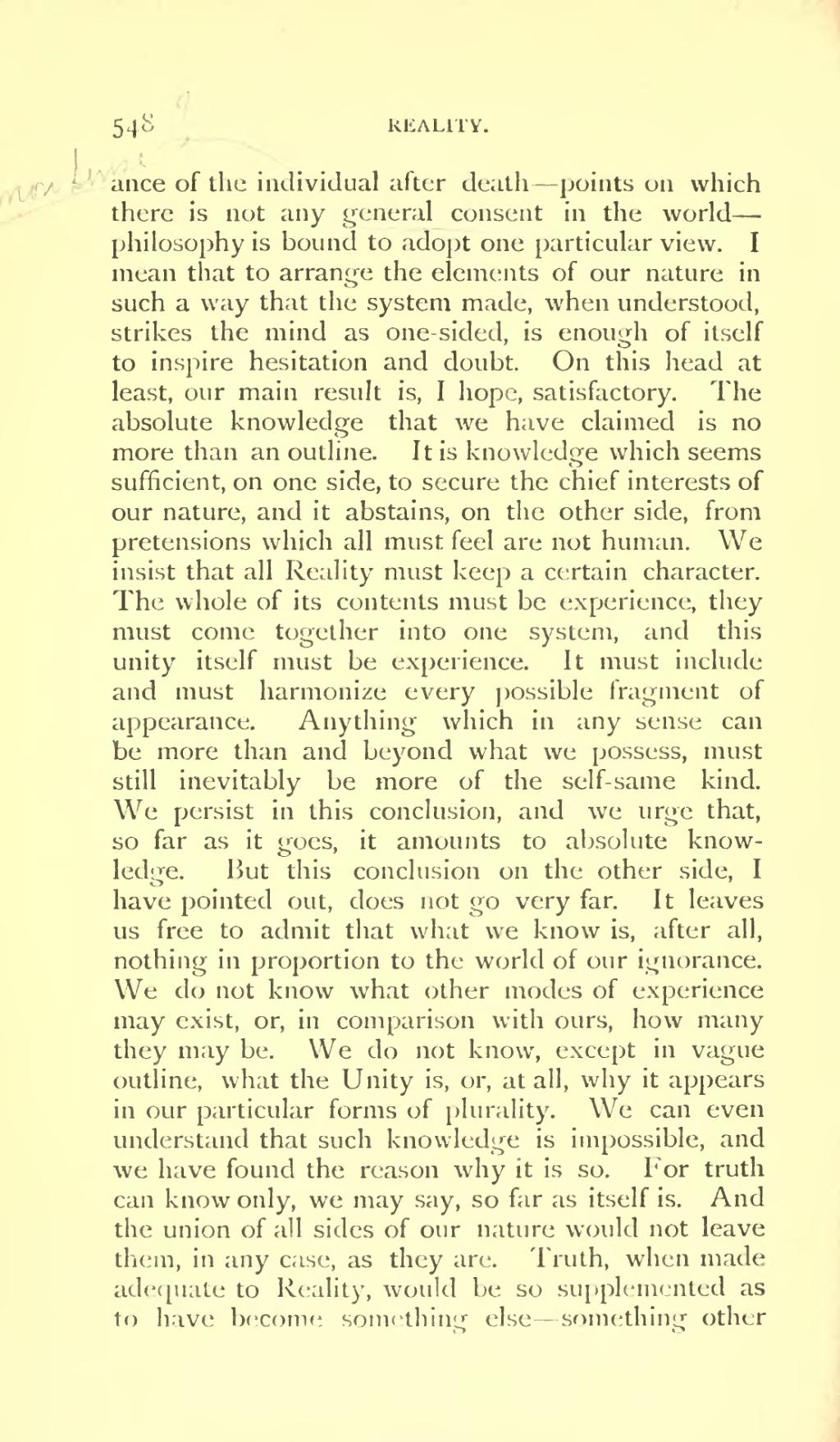ance of the individual after death—points on which there is not any general consent in the world—philosophy is bound to adopt one particular view. I mean that to arrange the elements of our nature in such a way that the system made, when understood, strikes the mind as one-sided, is enough of itself to inspire hesitation and doubt. On this head at least, our main result is, I hope, satisfactory. The absolute knowledge that we have claimed is no more than an outline. It is knowledge which seems sufficient, on one side, to secure the chief interests of our nature, and it abstains, on the other side, from pretensions which all must feel are not human. We insist that all Reality must keep a certain character. The whole of its contents must be experience, they must come together into one system, and this unity itself must be experience. It must include and must harmonize every possible fragment of appearance. Anything which in any sense can be more than and beyond what we possess, must still inevitably be more of the self-same kind. We persist in this conclusion, and we urge that, so far as it goes, it amounts to absolute knowledge. But this conclusion on the other side, I have pointed out, does not go very far. It leaves us free to admit that what we know is, after all, nothing in proportion to the world of our ignorance. We do not know what other modes of experience may exist, or, in comparison with ours, how many they may be. We do not know, except in vague outline, what the Unity is, or, at all, why it appears in our particular forms of plurality. We can even understand that such knowledge is impossible, and we have found the reason why it is so. For truth can know only, we may say, so far as itself is. And the union of all sides of our nature would not leave them, in any case, as they are. Truth, when made adequate to Reality, would be so supplemented as to have become something else—something other
